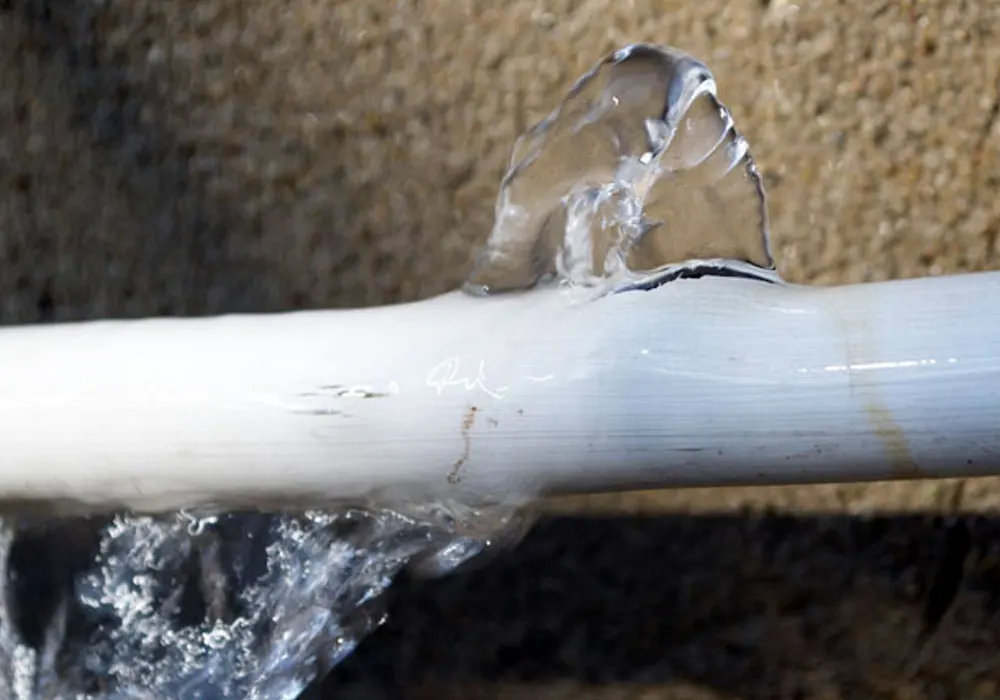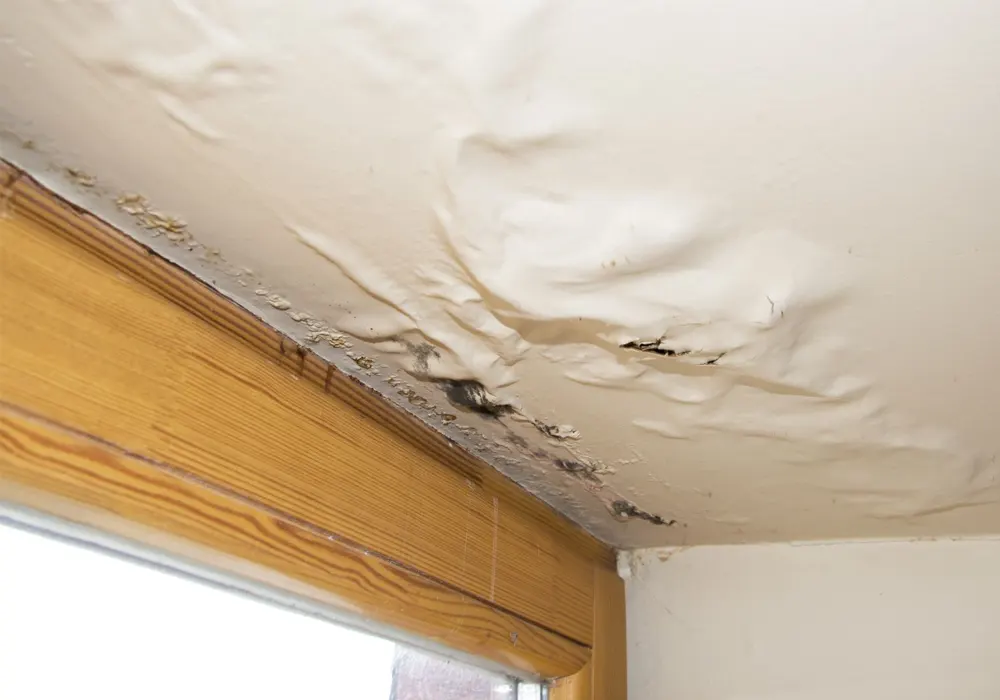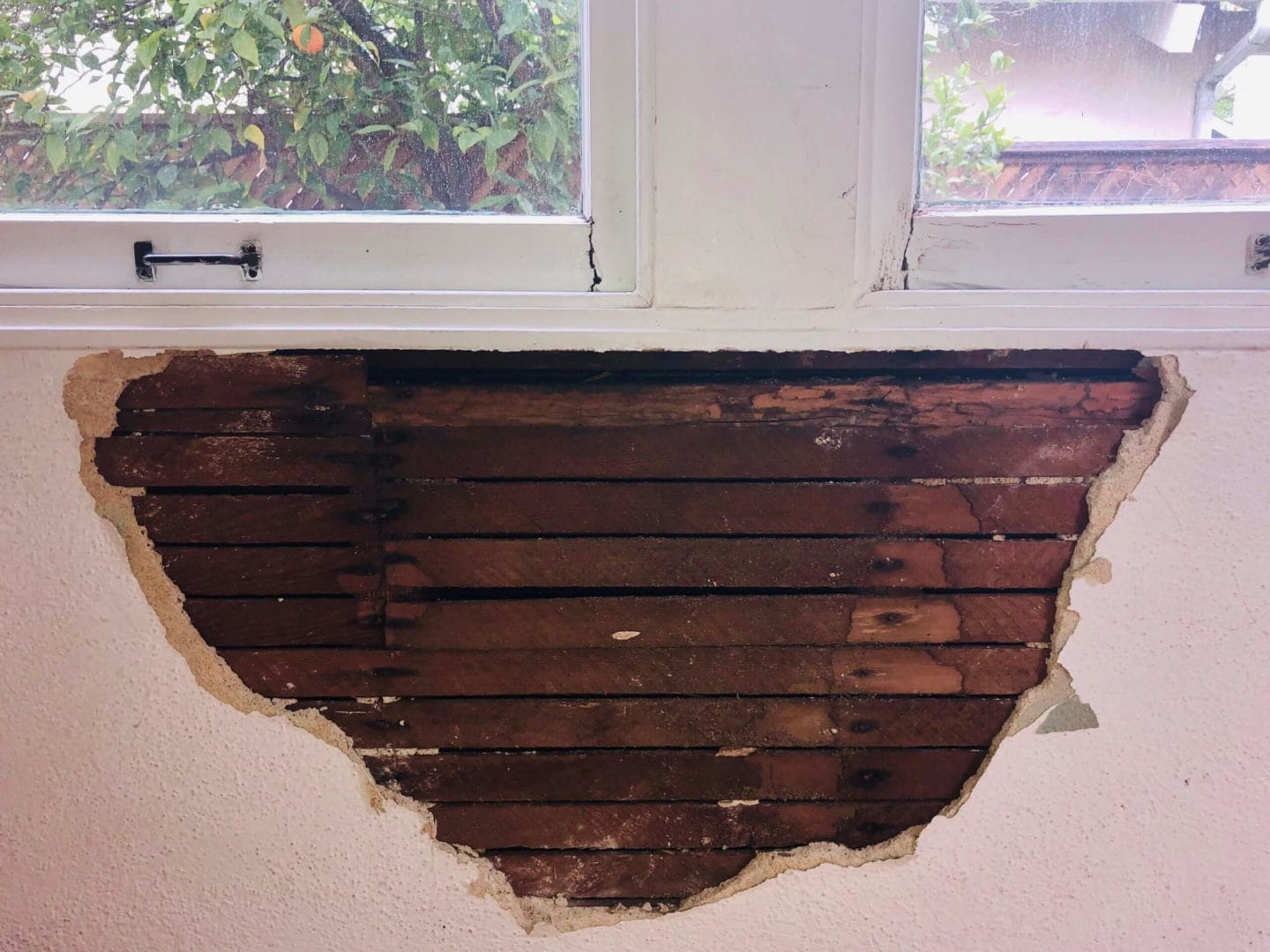Does selling a house with water damage decrease home value? Sadly, yes. Read on to discover what a home appraisal will check regarding your water damage, and what you need to disclose before selling.
At Save The Day Restoration we deal with water extraction and mold remediation all the time. So it’s best to get all your water damage issues solved so you can get the best price for your home.
Does Water Damage Decrease Home Value?
Water damage decreases home value significantly. That’s why it’s imperative to get water damage seen to before putting your house on the market.
Here is how your home will lose the most value based on water damage:
#1 Structural Damage
This is what will really lower your property value if you don’t get it fixed. Issues with sagging ceilings, crawl spaces, beams, roofs, and warped flooring. Homes are typically the most unsafe to live in with this type of structural water damage.
#2 Foundation Damage
A burst pipe is a common culprit for foundation damage, as is flood damage. But second to structural damage, foundation damage will also lower your asking price significantly.
#3 Mold Damage
Mold can also cause structural damage, if you have drywall. It can feast on insulation too, although this doesn’t cost as much to replace. In any case, mold damage restoration is typically more of a straightforward job than repairing serious structural or foundation damage.
Typical Causes of Water Damage
Most water damage tends to ruin the surrounding area as well so that’s why it will save you money the sooner you get it seen to.
Mother Nature
Floods, storms and heavy rain can cause great damage to your home. Selling a house with water damage from a flood can be a struggle without proper damage remediation.
Natural floods themselves are the only events known in legal terms as “flooding.” If the water damage is a result of any of the appliances below, it’s legally called “water damage.”
Pipes
Cracks and slow leaks can creep up on you and cause home water damage that you don’t notice for a while. Pipes from appliances can burst, especially if they freeze.

Water Heaters
Rust inside your water heater can mean leaks and water damage. The water pressure could be inadequate too, and lead to leaks.
Faucets
There are a number of ways that faucets can cause water damage to your home. The joints and connectors between the pipes can weaken and cause leaking. And again, the usual suspects of rust and high water pressure.
Homeowners often ignore faucet leaks, because it doesn’t seem like a high priority. But this is a big mistake, and faucet leaks are usually quicker to fix than other water issues.
Toilets
Gross. At least homeowners typically get toilet leaks seen to pronto. You’ll be able to see at once if the toilet is actually clogged.
Water damage from toilets can also be something as simple as a rubber valve seal. Or often it could be that the vents are blocked.
Sewage Damage
OK, even more gross. Are you among the thousands of Southern Californian homeowners with a septic tank? When it’s full, it’s full. There’s nowhere for it to go and it overflows.
Sewage damage not only requires water damage restoration, but also some serious sanitation and disinfection. Save The Day Restoration offers all these services as standard.
Disclosing Water Damage When Selling A House
California law is strict about selling a home with water damage. You have to declare exactly what the problems are. Otherwise, sellers can be sued for hiding issues that the buyers discover later on.
Home Appraisal Water Damage
Want to know the real value of your home? An appraisal is the only way to do it. So it’s important to get professional water damage restoration or mold remediation as necessary before your home appraisal.
Negative home appraisal water damage findings can drive down your property price significantly.
What Will A Home Appraisal For Water Damage Look For?
A professional appraiser will look for water, damp, mold and mildew everywhere. Here’s where they mostly check if you intend on selling a house with water damage.
Roof
Leaks and missing shingles that would let in the rain, plus gaps that rodents and insects could get in.
Attic
Evidence of damp insulation. This can be from leaks, condensation or a pest infestation.
Walls
Water mark staining and rotten drywall. Also any irregular bumps.
Ceilings
As with the walls, and any sagging parts.

Electrical Appliances
Any evidence of prior water damage in the immediate area? Then the appraiser will check the condition of electrical outlets and lighting. Plus any electrical appliances that don’t work.
Damaged Floors
Warping, peeling and soft patches in the floors. Plus with carpets, they’ll check for mold and lingering damp smells.
Basement
Pooled water itself in the basement, especially after rain. Musty smells and mold. Burst pipes here too.
Foundations
Cracks in the foundations and places where the sealing has come apart due to water damage.
How Much Financial Loss Are We Looking At When Selling A House With Water Damage?
There are a lot of factors to consider here.
Flooding
Is your home located in a place where it regularly floods? If so, you can expect to lose over 7% of your home’s value because of the potential for future flooding.
Water Damage
This is where it gets tricky. If your home has suffered badly from the water damage mentioned above, the answer could be a great, great deal.
After all, no buyer would be interested in a home with mold, sagging beams, dangerous floors and a roof in danger of collapse.
Call Save The Day Restoration So You Can Get The Best Price For Your Property
You shouldn’t be considering selling a house with water damage. At least, not if it’s significant structural damage. Our experienced professionals will restore your water damage or mold damage to a high level so that you can sell your home for the price you deserve.
Call us any time of day at (562) 246-9908 or simply get in touch by email.




